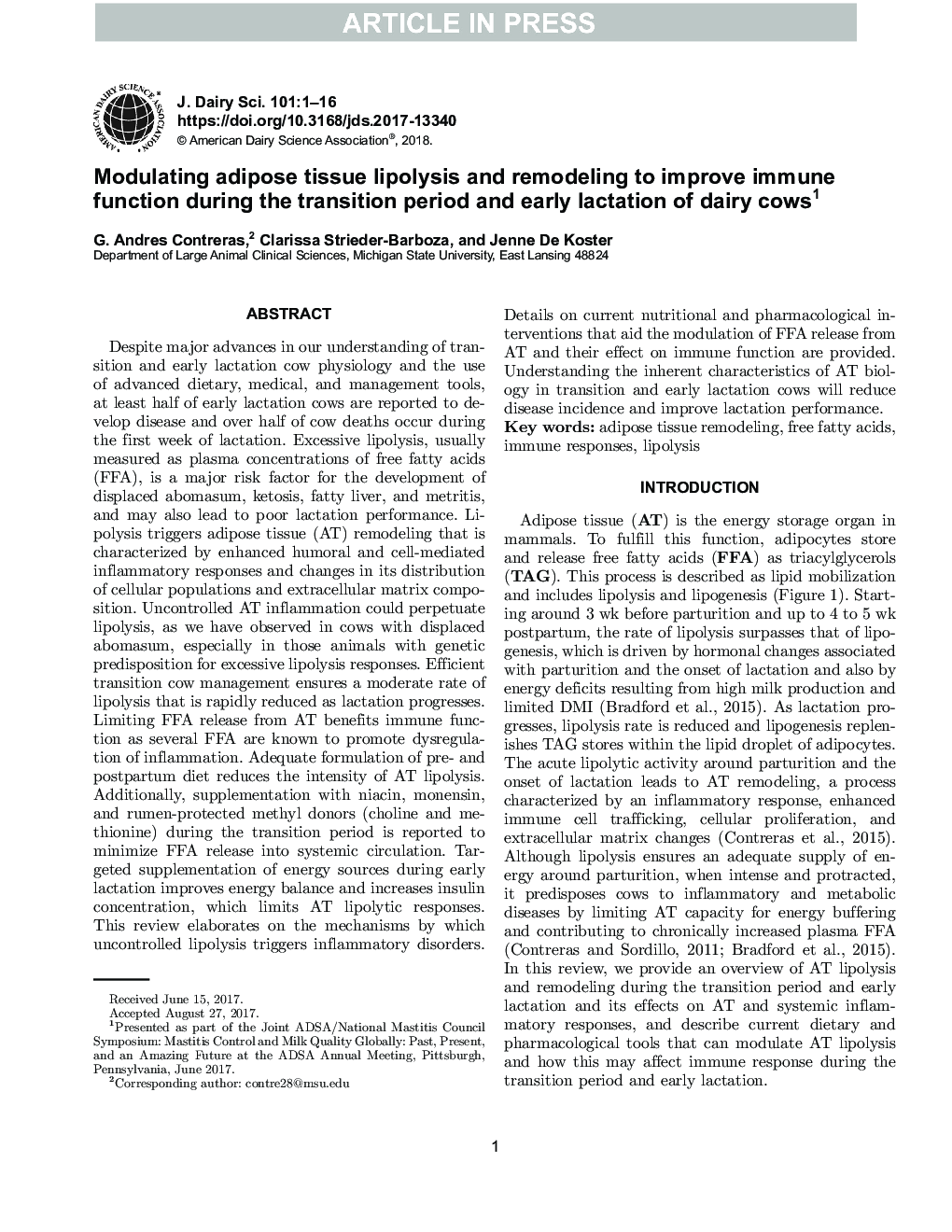| کد مقاله | کد نشریه | سال انتشار | مقاله انگلیسی | نسخه تمام متن |
|---|---|---|---|---|
| 8501526 | 1553842 | 2018 | 16 صفحه PDF | دانلود رایگان |
عنوان انگلیسی مقاله ISI
Symposium review: Modulating adipose tissue lipolysis and remodeling to improve immune function during the transition period and early lactation of dairy cows
ترجمه فارسی عنوان
بررسی سمپوزیوم: القاء لیپولیز بافت چربی و بازسازی برای بهبود عملکرد سیستم ایمنی در طی دوره انتقال و زودهنگام شیردهی گاوهای شیری
دانلود مقاله + سفارش ترجمه
دانلود مقاله ISI انگلیسی
رایگان برای ایرانیان
کلمات کلیدی
بازسازی بافت چربی، اسیدهای چرب آزاد، پاسخ ایمنی، لیپولیز،
موضوعات مرتبط
علوم زیستی و بیوفناوری
علوم کشاورزی و بیولوژیک
علوم دامی و جانورشناسی
چکیده انگلیسی
Despite major advances in our understanding of transition and early lactation cow physiology and the use of advanced dietary, medical, and management tools, at least half of early lactation cows are reported to develop disease and over half of cow deaths occur during the first week of lactation. Excessive lipolysis, usually measured as plasma concentrations of free fatty acids (FFA), is a major risk factor for the development of displaced abomasum, ketosis, fatty liver, and metritis, and may also lead to poor lactation performance. Lipolysis triggers adipose tissue (AT) remodeling that is characterized by enhanced humoral and cell-mediated inflammatory responses and changes in its distribution of cellular populations and extracellular matrix composition. Uncontrolled AT inflammation could perpetuate lipolysis, as we have observed in cows with displaced abomasum, especially in those animals with genetic predisposition for excessive lipolysis responses. Efficient transition cow management ensures a moderate rate of lipolysis that is rapidly reduced as lactation progresses. Limiting FFA release from AT benefits immune function as several FFA are known to promote dysregulation of inflammation. Adequate formulation of pre- and postpartum diet reduces the intensity of AT lipolysis. Additionally, supplementation with niacin, monensin, and rumen-protected methyl donors (choline and methionine) during the transition period is reported to minimize FFA release into systemic circulation. Targeted supplementation of energy sources during early lactation improves energy balance and increases insulin concentration, which limits AT lipolytic responses. This review elaborates on the mechanisms by which uncontrolled lipolysis triggers inflammatory disorders. Details on current nutritional and pharmacological interventions that aid the modulation of FFA release from AT and their effect on immune function are provided. Understanding the inherent characteristics of AT biology in transition and early lactation cows will reduce disease incidence and improve lactation performance.
ناشر
Database: Elsevier - ScienceDirect (ساینس دایرکت)
Journal: Journal of Dairy Science - Volume 101, Issue 3, March 2018, Pages 2737-2752
Journal: Journal of Dairy Science - Volume 101, Issue 3, March 2018, Pages 2737-2752
نویسندگان
G. Andres Contreras, Clarissa Strieder-Barboza, Jenne De Koster,
